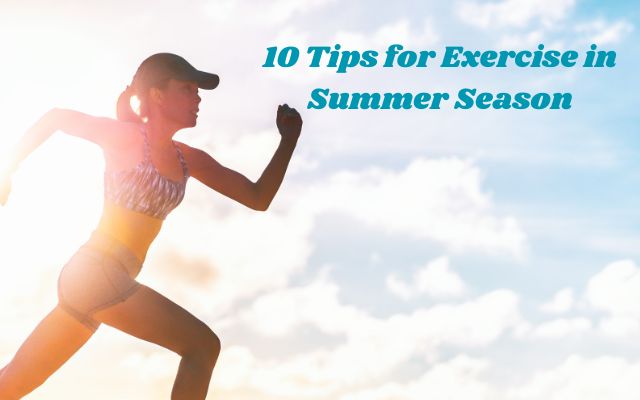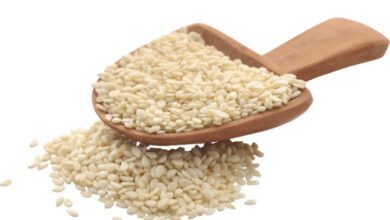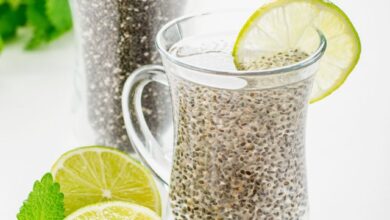10 Tips for Exercise in Summer Season
Staying Fit and Safe: 10 Summer Exercise Tips

Some tips for exercise in summer. It’s essential to get familiar with the symptoms of heat exhaustion so you can recognize them if you or someone else is at risk of a heat stroke. There are preventative precautions you can follow to exercise safely in the heat when exposed to high temperatures as well as humidity.
The value of exercising every day cannot be overstated. Maintaining a healthy Body Mass Index (BMI) is crucial, but so is strengthening immunity to keep illnesses at bay.
Heat Affect Body
Exercising in hot climates exposes your body under extra strain. During workout, both air humidity and temperature can raise your body temp. Your body sends extra blood to flow through your skin to try cool itself. This means your muscles get less blood, which raises your heart rate.
Because perspiration does not easily drain from your skin when the weather is hot, your body is put under additional strain. When you stop sweating in hot, humid weather, you’re more likely to suffer from dehydration, heat exhaustion, and heat stroke.
Difference Between Heat Exhaustion And Heat Stroke
| Heat exhaustion symptoms | Heat stroke symptoms |
| Weakness | Elevated body temperature above 104°F (40°C) |
| Heavy sweating | No sweating |
| Faster pulse rate or heart rate | Rapid and strong pulse or heart rate |
| Nausea or vomiting | Loss or change of consciousness |
| Possible fainting, light-headedness, dizziness | Hot, red, dry, or moist skin |
| Pale, cold, clammy skin | Headache and Confusion |
What To Do In That Situation
| What to do at the time Heat exhaustion | What to do at the time of Heat stroke |
| Take a cool shower or use a cold air to decrease body temperature | Emergency treatment |
| Hydrate with water or sports drinks | Go to a shaded or cool area |
| Move to a shaded or cool area | Circulate air to speed up cooling |
| Seek medical treatment if vomiting continues | Use a cold compress or cold, wet cloth to help lower body temperature |
| Lie down | ——– |
| Remove any extra layers or unnecessary clothing, like shoes or socks | ——– |
Tips For Exercise In Summer
Ease Up-
Know when to take it easy, especially if you’re visiting new hot and humid locations. It’s likely that you won’t be able to exercise at the same intensity as usual, and that’s fine.
If you regularly run, try walking or jogging instead. Slow down if you’re walking. Gradually increase the pace and duration of your workout as your body adjusts to the heat.
Ask your doctor whether you need to take any extra measures if you have a health condition or take prescription drugs.
Also read: How To Get A Stronger Core? 11 Exercises For Stronger Core
Avoid Hottest Part Of The Day
Go out around sundown or later if you want to enjoy the chill of the dawn. Take refuge in the shade during the noon heat (usually between 10 a.m. and 4 p.m.). Before and after your workout, dip your head as well as hair in water.
Light Colored And Light Weight Clothing-
Dark hues absorb heat, giving the appearance of being covered in a warm blanket. Heavy, form-fitting clothes will help keep you warm. Maintain a relaxed attitude. Keep things simple. It will be easier for air to circulate across your skin, keeping you cool.
Drink Up
When we exercise in hot weather, our body temperature rises. If we’re exposed to high temperatures for an extended period of time, our bodies’ natural cooling system may begin to malfunction. Heat exhaustion, that horrible lethargy that makes you feel like one more step may be your final, could be the outcome. You might even have heat stroke.
If the humidity is high, you’re in even more difficulty since perspiration “clings” to your skin and doesn’t dissipate as quickly, raising your body temperature.
Drink lots of water to remain cool.
Don’t Drink Too Much
Over hydration, or consuming too much water, can cause hyponatremia (low blood sodium). Make sure you’re getting enough salt and supplementing the amino acids shed in sweat to be moist but not overly so.
Hydration Level-
Checking the color of your urine is a smart approach to make sure you’re hydrated adequately. You’re properly hydrated if it’s pale yellow (think lemonade). Drink extra if it’s darker (approaching the colour of apple juice).
However, several drugs and supplements change the color of urine, so this test, although useful for many, may not be accurate for everyone. Drink the suggested 200 to 500ml of water every twenty minutes of exercise to be safe.
Soft Drinks
They’re high in calories. The calories in sports drinks are not good.
Sports drinks should only be used if you’re at a healthy weight and exercising at a high intensity for lengthy periods of time. Even so, diluting sports drinks to minimize excessive caloric intake is a good idea.
Consuming fruits and vegetables while exercising supplies the body with enough electrolytes, reducing the need for high-calorie sports drinks even more.
Keep in mind that dehydration, rather than low electrolytes (potassium, magnesium, calcium), low salt, or low sugar, is the most common cause of muscular cramping. Improve your water consumption during and after exercise, even if you do not even feel thirsty, rather to consuming large amounts of bananas or salty or sweet snacks.
Never Allow Yourself Get To The Place Where You Feel To Get Faint, Dizzy, Or Nauseous-
Sure, not finishing your workout kills you. Pay attention to your body. If you’re experiencing any of the following symptoms, seek out air-conditioned relief as soon as possible.
- Weakness
- Light-headedness
- Paling of the skin/dizziness
- Headache
- Muscle spasms
- Vomiting / nausea
- A fast heartbeat
Always keep in mind that even a 20-minute workout is beneficial to your health. The number of days you workout, not the length of each exercise session, is the most important factor.
Immediately Stop If You Feel Dizzy Or Unwell-
Choose juicy foods such as fruit. Dry foods like crackers, popcorn, or energy drinks which need your body to add water that need in the hot weather.
Disclaimer
The opinions presented in this article should not be regarded as a replacement for medical advice. For more information, please contact your treating physician.
FAQ
Q1: Why is it important to exercise during the summer season?
A1: Exercising in the summer helps maintain fitness, boosts mood, and keeps you healthy. It can also help you make the most of the good weather.
Q2: How can I stay safe while exercising in the summer heat?
A2: To stay safe, choose cooler times of the day, wear breathable clothing, stay hydrated, and use sunscreen. Listen to your body and avoid overexertion in extreme heat.
Q3: What are the best types of exercises for the summer season?
A3: Activities like swimming, cycling, hiking, and outdoor sports are excellent choices for summer. They allow you to enjoy the weather while staying active.
Q4: How do I prevent dehydration during summer workouts?
A4: To prevent dehydration, drink water before, during, and after your exercise session. Sports drinks with electrolytes can also be beneficial for longer, intense workouts.
Q5: Can I exercise during peak sun hours in the summer?
A5: It’s generally best to avoid exercising during the hottest part of the day, typically from 10 a.m. to 4 p.m. Opt for early mornings or late afternoons when it’s cooler.
Q6: What clothing is ideal for summer exercise?
A6: Wear lightweight, moisture-wicking fabrics that allow your skin to breathe. A wide-brimmed hat and sunglasses can help protect you from the sun.
Q7: Should I adjust my exercise intensity in the summer?
A7: Yes, consider reducing the intensity and duration of your workouts in high temperatures to avoid heat-related issues.
Q8: How can I make exercising in the summer more enjoyable?
A8: Find a workout buddy, explore new outdoor activities, or listen to your favorite music or podcasts while exercising to make it more enjoyable.
Q9: Can I still exercise if I have allergies in the summer?
A9: You can exercise with allergies by choosing outdoor locations with lower allergen exposure, taking allergy medications as prescribed, and wearing sunglasses to protect your eyes.
Q10: Are there specific foods I should include in my diet for summer exercise?
A10: Foods high in water content, like watermelon and cucumber, can help keep you hydrated. Include a balanced diet with fruits, vegetables, and lean proteins to support your fitness goals in the summer.



